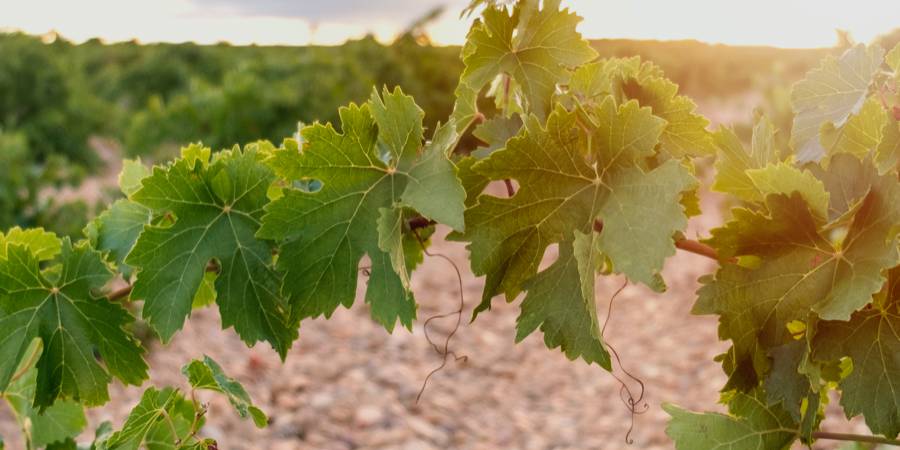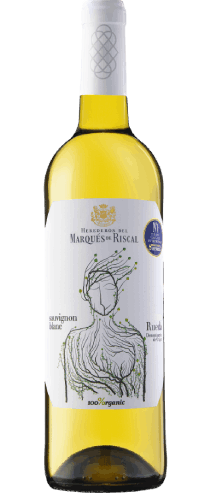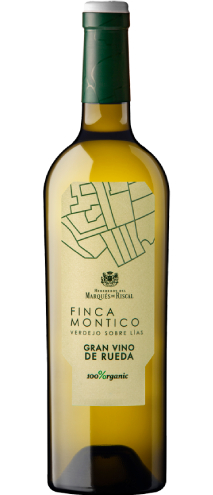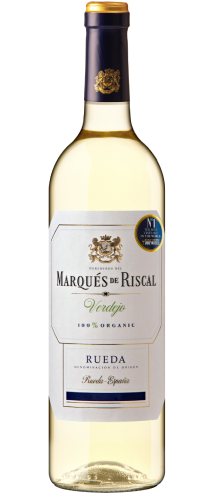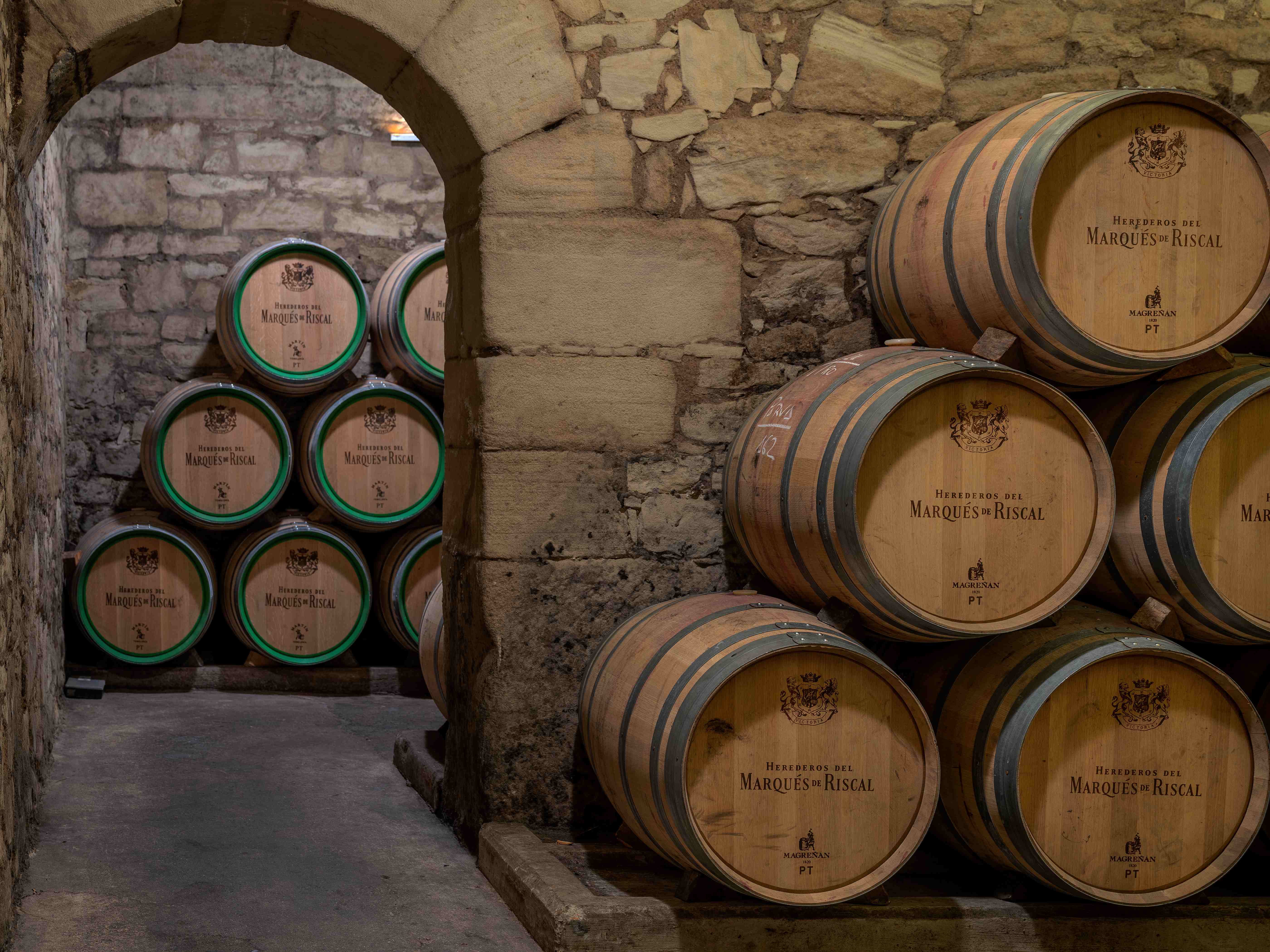100% Organic
A guarantee for the future of the quality of our wines
A guarantee for the future of the quality of our wines
Marqués de Riscal has made a firm commitment to organic agriculture. Respect for the environment, the indigenous fauna and the ecosystem makes the agriculture more sustainable and lengthens the life of our vineyards as a future guarantee of the quality of our wines.

Our 100% organic philosophy is mainly built on three elements:
- Recovering the varietal character, typicity and personality of the terroir of the wines:
With organic agriculture, the plant roots better, colonises a larger volume of the soil and is able to extract the mineral compounds from the organic matter without the need to use artificial mineral fertilisers. The diversity of living microorganisms acts in symbiosis with the plant through mycchorization, facilitating the absorption of nutrients. Thus the wines reflect much better the terroir from which they are made.
The absence of fungicides and low levels of sulphur dioxide greatly improve the spontaneous fermentations with delicate autochthonous yeasts, so the primary character of the grape variety has a stronger presence in the wines; they are more original and genuine. The moderate levels of sulphur dioxide used mean that the varietal aroma and that of each terroir are more clearly expressed.
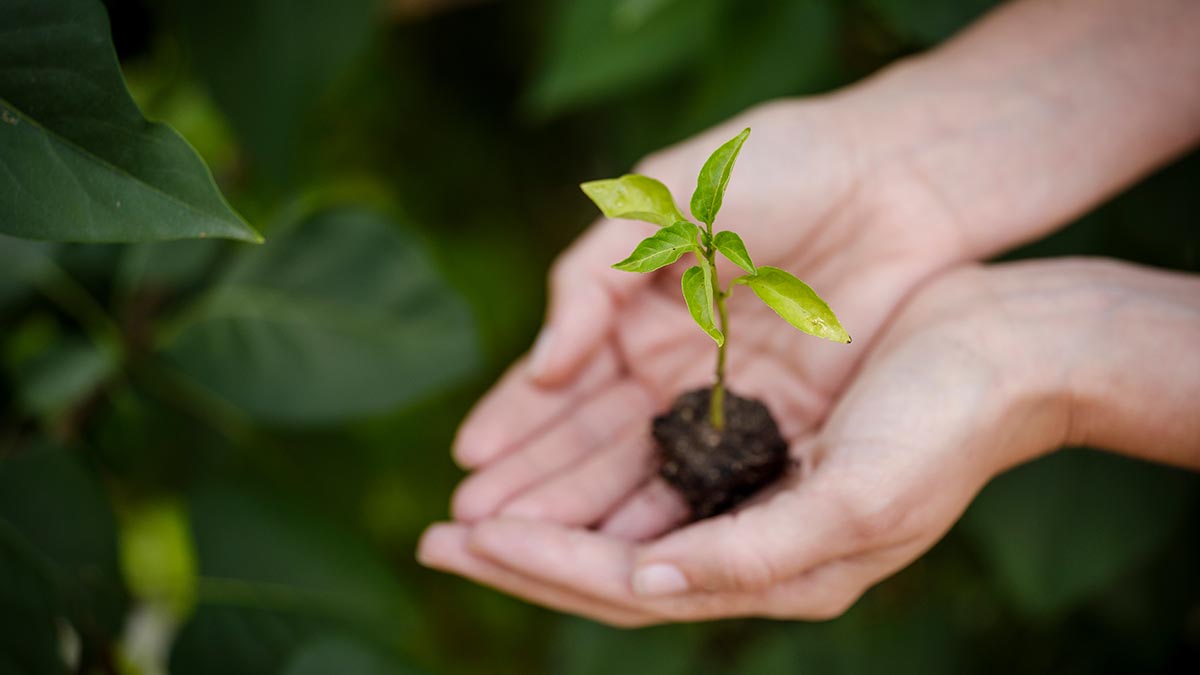
- Preserving and ensuring the continuity of the vineyard:
This is the guarantee of the future quality of our wines. The plant, as it does not receive external, synthesized products, develops a mechanism to produce natural self defence and becomes increasingly more resistant, healthier and more vigorous, thereby improving its resistance to different weather events, becoming more resilient.
The improved rooting and the colonisation of a larger volume of the soil is also a great help in enabling the vine to live longer. To ensure a long life to our vines it is vital that, apart from the organic agriculture methods, pruning is performed in ways which guarantee respect of the plant’s main flows of sap, that the pruning wounds are small, and well away from these flows of sap.
The old vines have a greater quantity of reserves, in both the trunk and the roots, with a more extensive root system which allows them to adapt better to climate changes to provide good ripening of the grapes. They are also able to maintain the levels of acidity better, producing a tastier, better balanced grape.
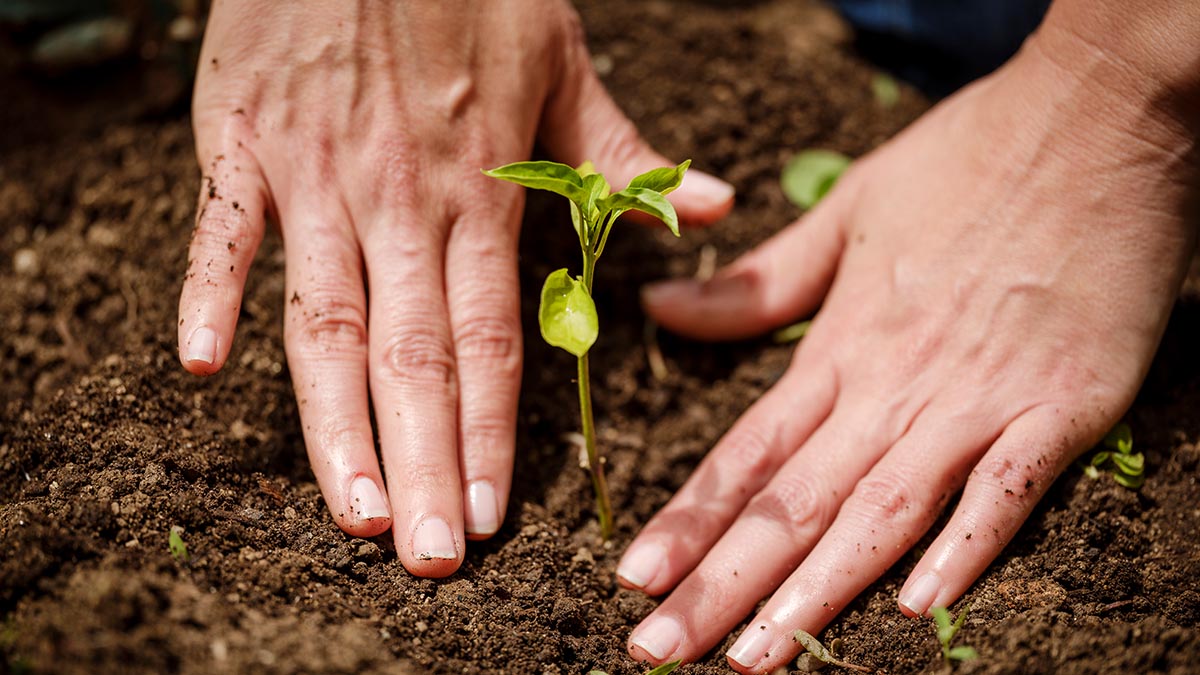
- Adaptation to climate change.
The climate is changing and relocating a vineyard may sometimes be an option within the same appellation, looking for greater altitude and even latitude, but especially you have to prepare the plant to make it more resistant to change. Organic agriculture, by recovering the life and structure of the soil, allows the plant to root better and to colonise a greater volume of soil. In this way the plant has a grater amount of water and nutrients at its disposal, becoming more resistant to drought and other weather events. Organic agriculture truly awakens the power of nature so that the plant adapts better to the surroundings.
The conditions under which today we are allowed to irrigate the vines are not always going to be the same and we have to get the vines used to a lack of water. Even then, in very dry years, the possibility of watering continues to be a deciding factor in the quality which can help correct ripening so long as its is employed in a rational way.
